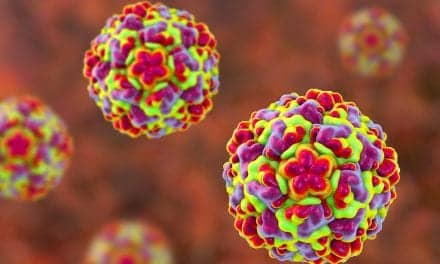Fear, trust, and the likelihood of exposure are three leading factors that influence whether people are willing to be vaccinated against a virulent disease, according to a new study in the journal Heliyon, published by Elsevier.
Following the highly-publicized 2014 outbreak of Ebola in Africa and anticipating the possibility of a future Ebola outbreak in the United States, a 2014 CNN/ORC poll asked a random sample of 1,018 adults if they would take an anti-Ebola vaccination if and when it became available. About half of the participants reported that they would, while half expressed hesitation or refusal, even if vaccination services for Ebola were available to them.
In the current study, investigators conducted a secondary analysis of that data to examine the factors contributing to vaccination receptivity vs. hesitation. They found that three factors primarily influenced receptivity: a general fear orientation; trust in government to contain a crisis; and the relative chance of being exposed to the pathogen. Interestingly, the effectiveness and safety of a vaccine itself was not among the factors influencing receptivity.
“Facing a raising number of epidemics that create public health dangers, our findings indicate that vaccine hesitancy is associated with social factors that are independent of the perceived effectiveness of vaccines. Willingness to take vaccination is positively associated with a generalized sense of fear, trust in the government’s ability to control an outbreak of the disease, and expectation of a potential Ebola outbreak that is imminent and proximate,” explains one of the study’s investigators, Kent P. Schwirian, PhD, Emeritus Professor of Sociology, The Ohio State University, Columbus, Ohio.
Professor Schwirian elaborated on how these three factors shape the willingness of half of the sample population to engage in the protective behavior of vaccination.
- General Fear Orientation. Respondents expressed fear not only of being infected, but also more generally in terms of their outlook on life and how they perceive things are going overall in society today. The more than 60 percent who reported being somewhat or very scared about events in the US today were much more willing to consider an anti-Ebola vaccination than individuals who did not report this anxiety.
- Trust in Government. People who expressed confidence in the US government’s ability to prevent an Ebola outbreak were much more willing to take the anti-Ebola vaccine than individuals who lacked confidence in the government to do so.
- Exposure Expectancy of an Ebola Outbreak. While approximately 80 percent of the respondents thought that it was somewhat or highly likely that an Ebola outbreak would happen fairly soon in the US, most people thought that the outbreak would not happen in their local community or family. However, the closer in proximity they thought the outbreak would be to them, the more willing they were to take the anti-Ebola vaccination.
Gustavo S. Mesch, PhD, Professor of Sociology and Rector, University of Haifa, Israel, the study’s other investigator, recommends reexamining the research questions with more current data. “Our life and death struggle against lethal microbes is ultimately fought at the local level. Unless local hospitals and health care personnel are prepared to fight and ready to go, we are at a major disadvantage in attempting to save lives,” he cautions. “Confirming what percentage of the population would opt-in or out of vaccines, and the central role of trust in the government, would help public health officials plan their responses.”









